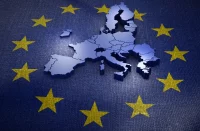A discussion on veterans’ policy change has been going on for some time in Germany upon the initiative of Minister of Defense Thomas de Meiziere (Christian Democratic Union). In April he submitted the “Bundesver veterans’ policy” report to the Bundestag Defense Committee. As the German tradition goes, it’s the two world wars participants who are called veterans. Now the Defense Ministry wants to encompass all those who have participated in all Bundesver’s operations abroad like in other NATO countries, where all conflict participants fit in the category since 1945.
In the USA all former servicemen are considered to be veterans, no matter if they took part in combat actions or not. The USA Department of Veterans Affairs is the second largest department of the country. Great Britain has numerous bodies responsible for veterans well being; five years ago they all got united under the Veterans-UK organization. In Germany an organization destined to defend the rights of former foreign operations participants was created in August 2010. It’s called German Veterans Association and represents ‘young veterans” focusing on medical aid because, as the organization members see it, the Defense Ministry is too bureaucratic in a lot of instances.
On June 12, 1994 the amendments to the Constitution were adopted to allow sending volunteers abroad to take part in military operations. But it was in 1991 when Germany started to be involved in the operations beyond its borders. Over 300 thousand Germans have taken part in the missions abroad in twenty years, 100 have lost their lives. The number of troops deployed in the operations at present is 6,5 thousand including 4,7 thousand in Afghanistan.
In concrete terms the Ministry proposes social and rehabilitation measures to be taken along with the ones of pure propaganda. For instance, one of the measures proposed envisages the celebration of a new date – The Veteran’s Day. Thomas de Meiziere mentioned it for the first time while on a visit to the USA in February 2012. He said then that such a date should be introduced like in other NATO states. He mentioned November when the victims of two world wars are remembered on the co called People’s Mourning Day. It’s not a day out, the date is not fixed, and it’s usually marked on Sunday six days before Christmas somewhere in the middle of November. No public entertainment is allowed, people lay wreathes at cemeteries, where those, who lost their lives in wars, are buried. A special Bundestag session takes place in solemn and mournful atmosphere. The members of parliament sing national anthem and songs. The German WWI losses were 2 million dead and 100 thousand wounded, WWII – 3.1 million dead and 1.2 wounded
The pubic opinion found the idea of changing the Mourning Day for a new day of memory unacceptable. In fact, the de Meiziere’s proposal was tactless. It’s not only because it’s ridiculous to compare the world wars with the postwar conflicts – at least from point of view of losses. The matter is The Mourning Day has already been renamed once in German history. It has done by national socialists. For the first time the dead memory was honored soon after WWI in 1920. Since 1922 the date became an official day of memory. When Hitler came to power it became the Hero’s Memorial Day, the Reich 1934 law did not limit it by the WWI fallen and also spread it on the members of national socialist party who lost their lives. After WWII was over, the Mourning Day date was moved in West Germany, it was marked for the first time in 1950. The German Democratic Republic honored the victims too, but not the Germans only but rather all victims of fascism
After having come under harsh criticism. De Meiziere suggested that the date would be May 22, having connected the date with the constitutional amendments that allowed the Federal Republic of Germany to join NATO. But as the report says all those who did indispensable service for the benefit of society in the ranks of Bundesver would be in the focus of public attention. At the same time, many Germans reject the idea that the Bundesver’s foreign missions – or NATO missions to be more precise, that have gone far beyond the article 5 of the North Atlantic Charter, have done any good service to the society. The German team, that is shooting the Mission Abroad film in Morocco, doesn’t give a definite answer too. What the life of common Afghans would be like if there were no foreign soldiers on their soil? What price is to be paid by those countries that call themselves democratic for their policy of military occupation? The Free Democratic Party, that forms the Federal government at present in coalition with the Christian Democrats, proposes another date – April 2 in the memory of two soldiers who lost their lives that day in Afghanistan in 2010. The opposition has stood up against the new veteran’s policy. If the Ministry of Defense really wants to come to the aid of former soldiers let it enhance their social security and not tackle the issue of honoring, – says the Left Party. The Greens say the initiative is to start from below instead of coming from the Ministry. The Social Democrats hold the same position, they say it’s not setting the day of mourning that is important but rather coming up with effective social security system.
The initiatives of the Federal Republic of Germany’s government aimed at the support of “young veterans” have the final goal of war propaganda, or, to be more precise – overcoming anti-military sentiment in society and obliteration of Nazi crimes.
Source: Strategic Culture Foundation














Comments